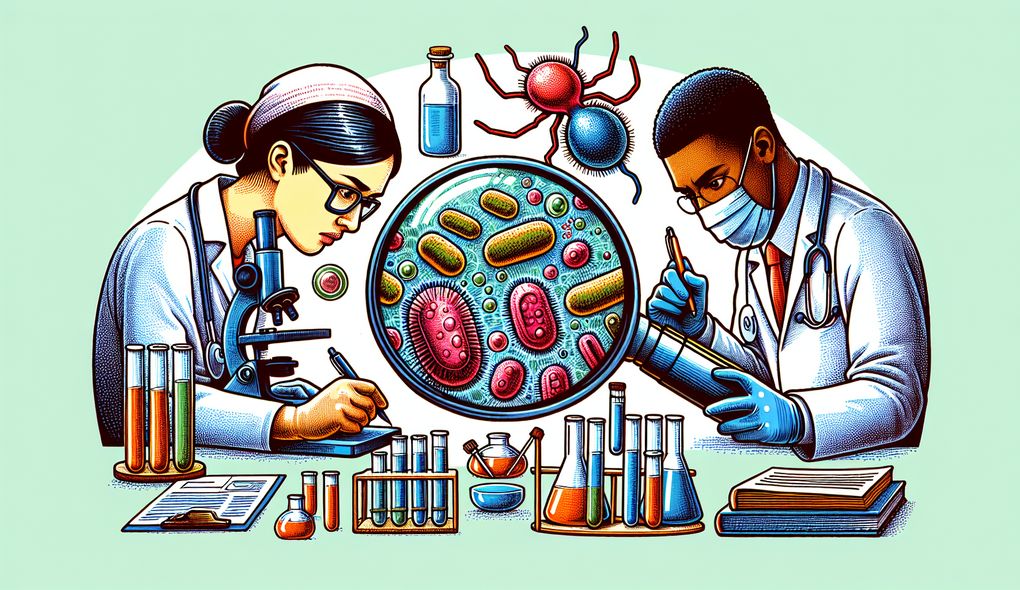Tell us about a time when you had to effectively educate a patient and their family about infection prevention and treatment strategies.
JUNIOR LEVEL

Sample answer to the question:
I once had a patient who was diagnosed with a serious infection and needed to be educated about infection prevention and treatment strategies. I sat down with the patient and their family and explained the importance of hand hygiene, proper wound care, and the use of personal protective equipment. I also discussed the medication regimen and possible side effects. I provided them with written materials and answered all their questions. The patient and their family were very receptive and committed to following the recommendations. As a result, the patient's condition improved, and there were no further complications.
Here is a more solid answer:
I had the opportunity to educate a patient and their family about infection prevention and treatment strategies when the patient was diagnosed with a severe bacterial infection. Firstly, I assessed the patient's understanding of their condition and identified areas that required education. I collaborated with the infection control team to develop educational materials that were tailored to the patient's needs. During the education session, I explained the importance of hand hygiene, proper wound care, and the use of personal protective equipment. I also discussed the medication regimen and potential side effects in detail. To ensure understanding, I used visual aids, such as diagrams and videos, and encouraged the patient and their family to ask questions. I provided written materials for them to refer to at home. Additionally, I involved the nursing staff, ensuring they were familiar with the patient's specific infection prevention requirements. The patient and their family were appreciative of the comprehensive education they received and committed to adhering to the recommended strategies. Through regular follow-up visits and open communication, I monitored their progress and addressed any concerns they had. The patient's condition improved, and there were no further infections. This experience showcased my strong clinical skills, excellent communication and interpersonal skills, as well as my ability to work effectively in a team-oriented healthcare environment.
Why is this a more solid answer?
The solid answer provides more specific details about the candidate's experience in educating a patient and their family about infection prevention and treatment strategies. It demonstrates the candidate's clinical skills through their collaboration with the infection control team and their use of visual aids. It also highlights the candidate's excellent communication and interpersonal skills by mentioning their proactive approach to addressing the patient's and their family's concerns. However, it can be further improved by including examples of working effectively in a team-oriented healthcare environment, such as coordinating with the nursing staff.
An example of a exceptional answer:
During my time as a healthcare provider, I encountered a case where I had to educate a patient and their family about infection prevention and treatment strategies. The patient was a young child who had acquired a severe multidrug-resistant infection. Recognizing the complexity of the situation, I assembled a multidisciplinary team consisting of infectious disease specialists, primary care physicians, pediatric nurses, and a child life specialist. Together, we devised a comprehensive education plan that incorporated both the medical and psychosocial aspects. I scheduled a series of individual and group education sessions for the child and their family. In these sessions, we covered topics such as proper hand hygiene, wound care, isolation precautions, and the importance of completing the full course of antibiotics. To make the sessions engaging for the child, we used age-appropriate teaching tools, such as interactive videos, games, and role-playing activities. The child's family was included in all sessions to ensure their full participation and understanding. Additionally, I provided ongoing support through phone calls and email communication, addressing any questions or concerns that arose. As a result of our comprehensive education efforts, the child and their family demonstrated a thorough understanding of infection prevention and treatment strategies. The child's infection improved, and they were eventually discharged from the hospital. This experience highlighted my strong clinical skills, excellent communication and interpersonal skills, and my ability to effectively collaborate with a multidisciplinary team.
Why is this an exceptional answer?
The exceptional answer goes above and beyond in describing the candidate's experience in educating a patient and their family about infection prevention and treatment strategies. It includes specific details about the complexity of the case, the involvement of a multidisciplinary team, and the use of innovative teaching tools to engage the child. The answer also emphasizes the candidate's ability to effectively collaborate with a diverse team and provide ongoing support. Overall, the exceptional answer demonstrates the candidate's expertise in the field of infectious diseases and their commitment to patient education and care.
How to prepare for this question:
- Review infection prevention and treatment strategies for various infectious diseases, including multidrug-resistant infections.
- Familiarize yourself with different educational materials and tools that can be used to engage patients and their families.
- Reflect on past experiences where you educated patients and their families about healthcare topics and think about the outcomes.
- Practice explaining complex medical concepts in simple and understandable terms.
- Seek opportunities to collaborate with healthcare professionals from different disciplines to enhance your ability to work effectively in a team-oriented healthcare environment.
What are interviewers evaluating with this question?
- Strong clinical skills
- Excellent communication and interpersonal skills
- Ability to work effectively in a team-oriented healthcare environment

